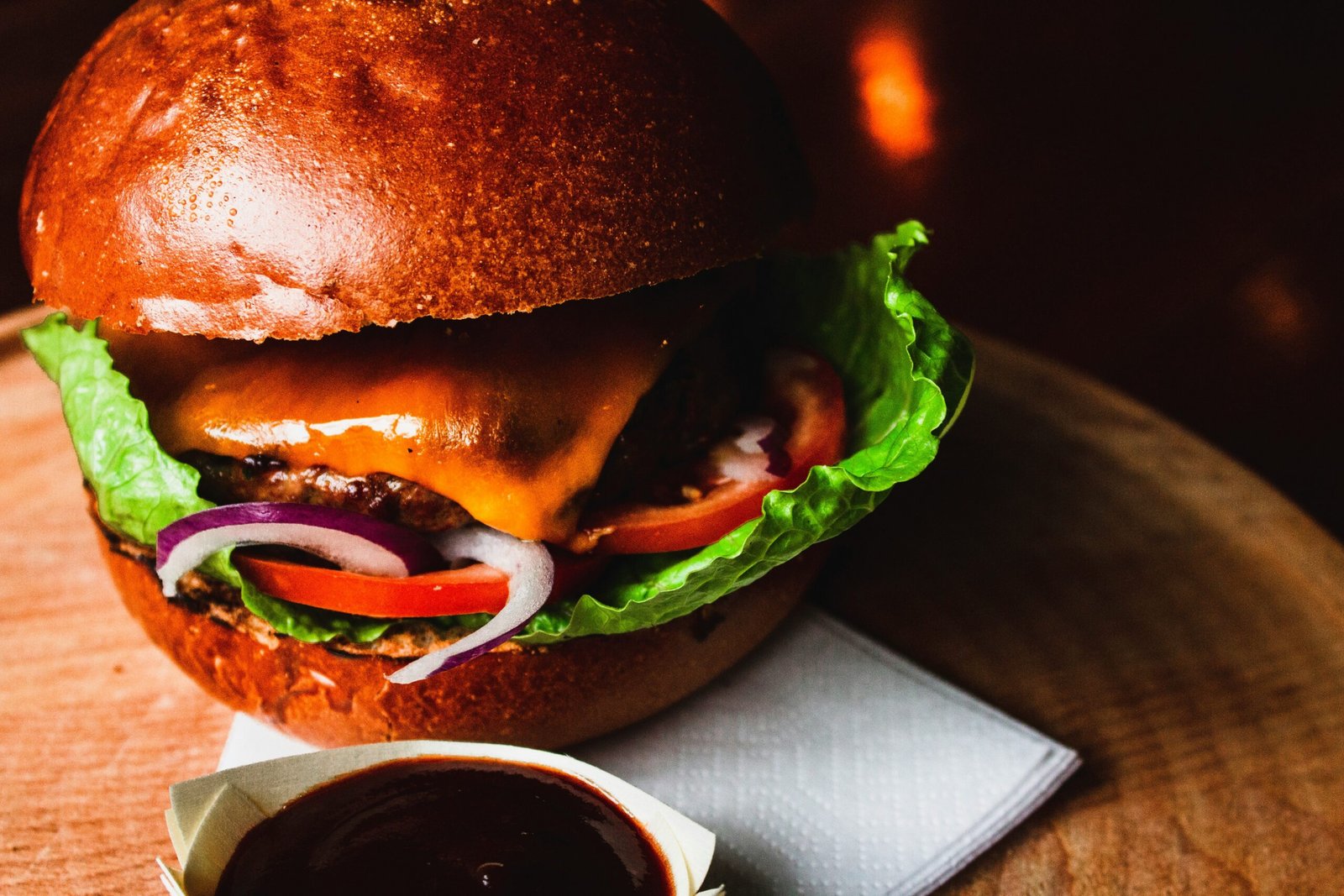Understanding Weight Loss: The Basics
Weight loss is a complex process that revolves around several fundamental principles, primarily focusing on caloric deficit, metabolism, and the role of macronutrients. To successfully lose weight, men must comprehend how these elements interact to create an effective weight loss diet plan.
At the heart of weight loss lies the concept of caloric deficit, which occurs when the number of calories consumed is less than the number of calories expended. This imbalance forces the body to use stored energy, primarily from fat, leading to weight reduction. It is critical to determine the appropriate caloric deficit: while a larger deficit may result in faster weight loss, it can also lead to muscle loss and metabolic slowdown if it is too significant. A moderate deficit, typically around 500 to 1000 calories fewer than daily energy expenditure, is often recommended for sustainable weight loss.
Metabolism, the biochemical processes that convert food into energy, plays a vital role in weight management. Factors such as age, muscle mass, and genetic makeup can influence metabolic rates. Higher muscle mass generally correlates with a faster metabolism, enhancing the body’s ability to burn calories efficiently. Understanding one’s metabolic rate is crucial for crafting a tailored diet plan that aligns with weight loss goals.
Macronutrients—proteins, carbohydrates, and fats—are essential components of the diet that impact weight loss. Proteins are crucial for preserving muscle mass during weight loss and should comprise a significant portion of the diet. Carbohydrates serve as the primary energy source, while healthy fats are vital for hormonal balance and overall health. Balancing these macronutrients appropriately increases satiety and energy levels, making adherence to the weight loss diet more manageable.
In essence, understanding the relationship between caloric intake, metabolism, and macronutrient composition is fundamental for establishing an effective weight loss strategy. This knowledge enables men to create a personalized diet plan that supports their weight loss objectives while promoting overall health and well-being.
Setting Realistic Goals for Weight Loss
Establishing realistic goals for weight loss is a fundamental step in achieving long-term success. It is crucial for individuals to understand their unique circumstances, including body type, lifestyle, and personal challenges, in order to define achievable weight loss targets. A healthy weight range can be determined using various metrics, such as Body Mass Index (BMI), body fat percentage, and waist-to-hip ratio, which consider both health and fitness levels.
The significance of setting both short-term and long-term goals cannot be overstated. Short-term goals, which could range from losing a few pounds within a month to incorporating more physical activity into a daily routine, serve as motivational benchmarks that pave the way for long-term aspirations. Long-term goals might include achieving a specific weight or maintaining a healthy lifestyle over several months or years. By breaking the overall objective into smaller, manageable targets, individuals are more likely to stay motivated and track their progress effectively.
To avoid frustration and discouragement during the weight loss journey, it is essential to monitor progress while maintaining a flexible outlook. Keeping a food diary or using fitness apps can help record dietary habits and physical activities, making it easier to identify patterns and celebrate improvements. Additionally, focusing on non-scale victories, such as increased energy levels, improved mood, or better-fitting clothes, can offer encouragement and reinforce commitment.
Ultimately, personalizing weight loss goals allows for a tailored approach that aligns with individual lifestyles and health considerations. By setting realistic targets and revisiting them regularly, men can cultivate resilience and sustain their motivation through the fluctuations of their weight management journey.
Designing a Balanced Weight Loss Diet Plan
Creating a balanced weight loss diet plan tailored specifically for men involves understanding the fundamental principles of nutrition and meal composition. A successful diet should incorporate a variety of food groups to ensure that the body receives the necessary nutrients while promoting weight loss. Key components of such a plan include proteins, carbohydrates, healthy fats, vitamins, and minerals.
Protein is essential for muscle maintenance, especially for men who may engage in physical activities or strength training. Including lean sources of protein, such as chicken, turkey, fish, legumes, and low-fat dairy, not only supports muscle function but also enhances satiety, preventing overeating. Healthy fats, found in foods such as avocados, nuts, and olive oil, contribute to overall health and can help keep hunger at bay. It is crucial to opt for unsaturated fats while limiting saturated and trans fats.
Carbohydrates should not be eliminated from the diet but should rather focus on complex carbohydrates, such as whole grains, fruits, and vegetables. These foods are not only high in fiber, which aids in digestion and prolongs feelings of fullness, but also provide the body with essential energy for daily activities. Striking a balance between these macronutrients will facilitate steady weight loss while ensuring nutritional adequacy.
Meal planning and preparation are vital for success when adhering to a weight loss diet. Preparing meals in advance can help eliminate unhealthy snacking and fast food temptations. Men can benefit from dedicating a day each week to cook and portion meals, which will make adherence to the diet more manageable. Additionally, incorporating a variety of flavors and textures through spices and different cooking methods can keep meals interesting and enjoyable, supporting sustained adherence to the diet plan.
Macronutrient Ratios: What Works Best for Men?
Understanding macronutrient ratios is essential for men looking to achieve effective weight loss while maintaining muscle mass and overall health. The three primary macronutrients—proteins, fats, and carbohydrates—play distinct roles in bodily functions and weight management. The optimal ratios can vary depending on individual goals, activity levels, and metabolic responses.
High-protein diets have gained considerable popularity among men aiming for weight loss. These diets typically emphasize protein intake of around 30-40% of total calories. A higher protein ratio can lead to improved muscle retention during weight loss, as protein is crucial for muscle repair and growth. Additionally, protein is known for its satiating properties, which help reduce overall caloric intake by increasing feelings of fullness and decreasing cravings.
Low-carb options, on the other hand, have also shown significant results in weight reduction for some individuals. Diets like the ketogenic plan restrict carbohydrates to less than 10-20% of daily caloric intake. This approach can prompt the body to enter a state of ketosis, where it burns fat for fuel instead of carbohydrates. While effective for weight loss, it is essential to ensure that healthy fats are prioritized to support cardiovascular health.
For those who prefer a balanced approach, a moderate macronutrient ratio may be ideal. This typically involves a distribution of around 40% carbohydrates, 30% protein, and 30% fats. Such a regimen allows for a diverse range of food choices while still adequately supporting muscle retention and providing sustained energy for daily activities.
Ultimately, determining the best macronutrient ratios requires individual consideration of dietary preferences, lifestyle, and specific weight loss targets. Adjusting these ratios can yield different results for each man, making it crucial to find a plan that feels sustainable and effective.
Incorporating Physical Activity into Your Weight Loss Plan
When embarking on a weight loss journey, it is vital to recognize that diet alone may not yield the desired results. Physical activity plays a crucial role in complementing dietary efforts, as it not only burns calories but also enhances overall health and well-being. Engaging in regular exercise can significantly boost metabolism, allowing for more effective fat loss and a toned physique.
There are various forms of exercise to consider, each contributing uniquely to your weight loss goals. Cardiovascular workouts, such as running, cycling, or swimming, are particularly effective at burning calories and improving cardiovascular fitness. Incorporating at least 150 minutes of moderate-intensity cardio each week can have a profound impact on your weight loss progress.
Additionally, strength training should not be overlooked, as it builds muscle mass, which in turn increases basal metabolic rate. This means that as you strengthen your muscles, your body will burn more calories, even at rest. Aim for two to three sessions of full-body strength training each week, focusing on compound movements such as squats, deadlifts, and bench presses.
Finally, flexibility workouts like yoga or Pilates are essential for maintaining mobility and preventing injury. These exercises enhance your range of motion and can aid in recovery after more intense workouts. The inclusion of flexibility training into your routine is crucial for overall performance and injury prevention.
To create a balanced exercise routine, combine each type of workout and adjust based on your personal preferences and fitness levels. Consider starting with shorter sessions and gradually increasing duration and intensity. Keep track of your progress, and do not hesitate to seek guidance from a fitness professional, if necessary, to ensure your routine aligns with your dietary efforts and weight loss objectives.
Key Foods to Include in Your Weight Loss Diet
When embarking on a weight loss journey, particularly for men, selecting the right foods is crucial for achieving and maintaining a healthy weight. A balanced diet should consist of nutrient-dense foods, which provide ample vitamins and minerals without excess calories. Incorporating a variety of fruits and vegetables into your daily meals can greatly enhance both nutritional quality and satiety. For instance, leafy greens such as spinach and kale, along with colorful options like bell peppers and berries, can be deliciously added to salads, smoothies, or stir-fries.
Protein plays a key role in weight loss, as it helps to build and maintain muscle mass while aiding in the feeling of fullness. Lean protein sources, including chicken breast, turkey, fish, and plant-based options such as legumes and beans, should be regular components of meals. Aiming for a portion of protein in each meal can not only support weight loss efforts but also contribute to a balanced diet.
Whole grains, such as quinoa, brown rice, and oats, are another category of food to incorporate, as they contain fiber that promotes digestive health and keeps you feeling satisfied longer. Swapping refined grains for whole grains can make a significant difference in your weight loss journey. Additionally, healthy fats, including avocados, nuts, and olive oil, should be included in moderation. These fats are essential for overall health and can help regulate hunger levels.
While focusing on beneficial foods, it is also important to limit or avoid certain items that can hinder weight loss. Processed foods, sugary beverages, and trans fats should be minimized to support overall health and weight goals. By consciously selecting the right foods and being mindful of portion sizes, men can develop a sustainable weight loss diet that not only aids in shedding pounds but promotes long-term health.
Dealing with Cravings and Emotional Eating
Cravings and emotional eating are significant challenges that many individuals face during their weight loss journey. Understanding these phenomena is crucial for developing effective strategies that pave the way for sustainable weight management. Cravings can arise from various factors, including nutritional deficiencies, habits, and emotional triggers. Identifying these triggers is the first step toward managing them effectively.
One effective method to combat cravings is to keep a food diary, documenting not only what you eat but also the emotions associated with those eating moments. This practice allows individuals to uncover patterns and provoke triggers—be it boredom, stress, or loneliness. Once these associations are recognized, one can implement healthier alternatives such as opting for whole fruits or nuts instead of processed snacks. This not only satisfies the need for indulgence but also nourishes the body.
Mindful eating is another essential practice. It encourages individuals to focus intently on the food they consume, appreciating its flavors and textures, which helps diminish the likelihood of overeating. By paying attention to hunger cues, an individual can better discern between genuine hunger and emotional cravings. Practicing gratitude for meals and savoring each bite can also enhance the overall eating experience.
The psychological aspect of weight loss cannot be overlooked. Being aware of emotional states can significantly affect eating habits. Techniques such as deep breathing, yoga, or engaging in hobbies can serve as constructive alternatives to eating when faced with emotional stress. Furthermore, maintaining regular physical activity has been shown to improve mood and reduce cravings by releasing endorphins, which can positively influence one’s mindset during the weight loss process.
By adopting these strategies, such as identifying cravings, practicing mindful eating, and addressing emotional triggers, individuals can navigate the challenges of cravings and emotional eating more effectively, ultimately enhancing their weight-loss journey.
Supplements: Are They Necessary for Weight Loss?
The pursuit of weight loss often leads individuals to consider various dietary supplements as part of their regimen. While some may find these supplements beneficial, it is crucial to understand their role within the broader context of a weight loss diet. Many commonly marketed supplements, such as fat burners, protein powders, and appetite suppressants, have gained popularity among those seeking to shed pounds. However, their effectiveness can vary significantly from person to person.
Research suggests that while some supplements may assist in weight loss by promoting fat oxidation or increasing metabolism, they are not a substitute for a balanced diet and regular physical activity. The foundation of any weight loss strategy should be whole foods rich in essential nutrients. Foods such as fruits, vegetables, whole grains, lean proteins, and healthy fats not only provide the necessary fuel for daily activities but also encourage a feeling of fullness and satisfaction, reducing the likelihood of overeating.
Before incorporating any supplements into a weight loss plan, it is advisable to assess dietary needs and lifestyle factors. This assessment can help identify potential nutrient deficiencies that may benefit from supplementation. For instance, individuals with insufficient protein intake may find a quality protein powder useful to support muscle recovery and satiety. Similarly, those lacking specific vitamins or minerals might consider a multivitamin to fill those gaps.
Furthermore, it is essential to approach supplementation with caution, as the market is rife with products that make unverified claims. Consulting a healthcare professional can aid in making informed decisions about which supplements, if any, may be appropriate. In summary, while supplements can play a role in the weight loss journey, they should be viewed as supportive tools rather than primary solutions. Prioritizing a nutritious diet and consistent exercise remains the cornerstone of effective weight management.
Maintaining Weight Loss: Tips for Long-Term Success
Achieving weight loss is a significant milestone for many, but the journey does not end there. Maintaining weight loss is often more challenging than the initial weight reduction phase. To ensure that the hard work put into achieving your weight goal is not lost, it is essential to develop consistent habits that support a sustainable lifestyle. Building these habits involves making mindful choices regarding diet and exercise that can be integrated seamlessly into everyday life.
Ongoing self-monitoring is a critical component of maintaining weight loss. Regularly tracking your food intake, physical activity, and body weight can help identify patterns that contribute to weight fluctuations. By keeping a journal or utilizing apps that promote healthy behaviors, individuals can stay accountable and aware of their progress. This transparency enhances awareness and allows for timely adjustments to dietary plans or exercise routines to address any emerging challenges.
Adapting dietary and exercise plans is also vital in the weight maintenance process. Over time, what worked during the initial weight loss may not yield the same results due to changes in metabolism, lifestyle, or personal preferences. Consequently, it may be beneficial to periodically reassess goals and strategies, incorporating a variety of physical activities to avoid boredom and encourage sustained engagement. This may include exploring new workouts or diversifying meal options to ensure nutritional needs are met while preventing fluctuations in weight.
Encountering weight plateaus is another common experience in the maintenance journey. It is vital to remember that these plateaus can be temporary and manageable. Strategies such as increasing workout intensity or focusing on more strength training can aid in overcoming this hurdle. Additionally, embracing the inevitability of weight fluctuations as part of life can shift perceptions, turning focus toward long-term habits rather than short-term changes. Ultimately, adopting a holistic approach that combines consistency, self-monitoring, flexibility, and resilience will help ensure lasting success in maintaining weight loss.











